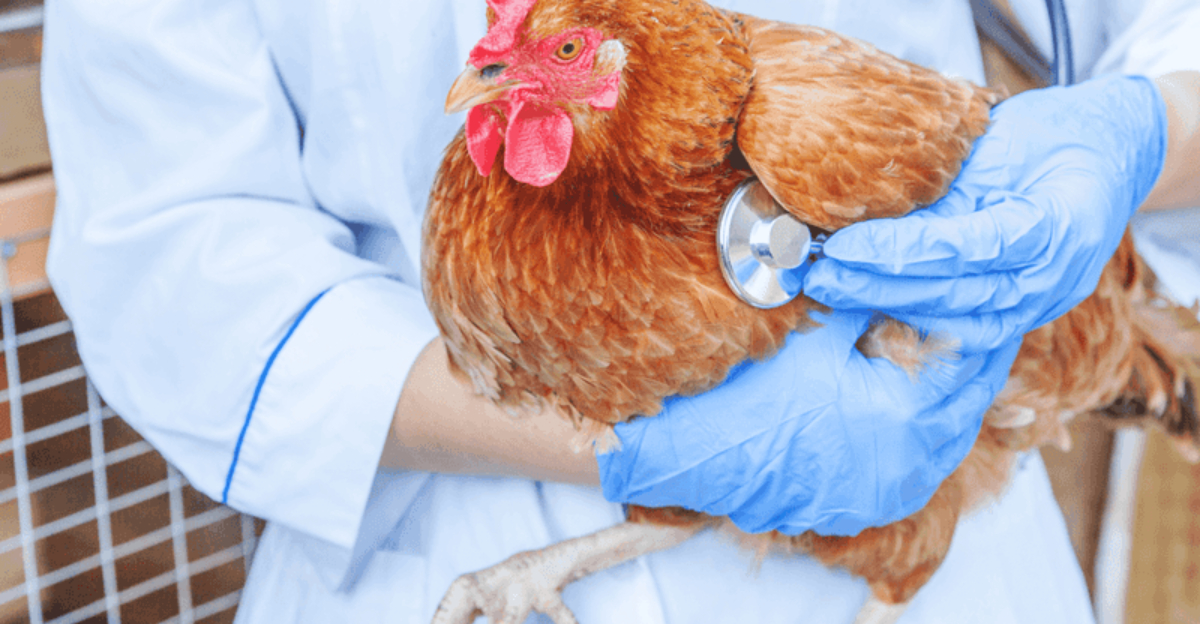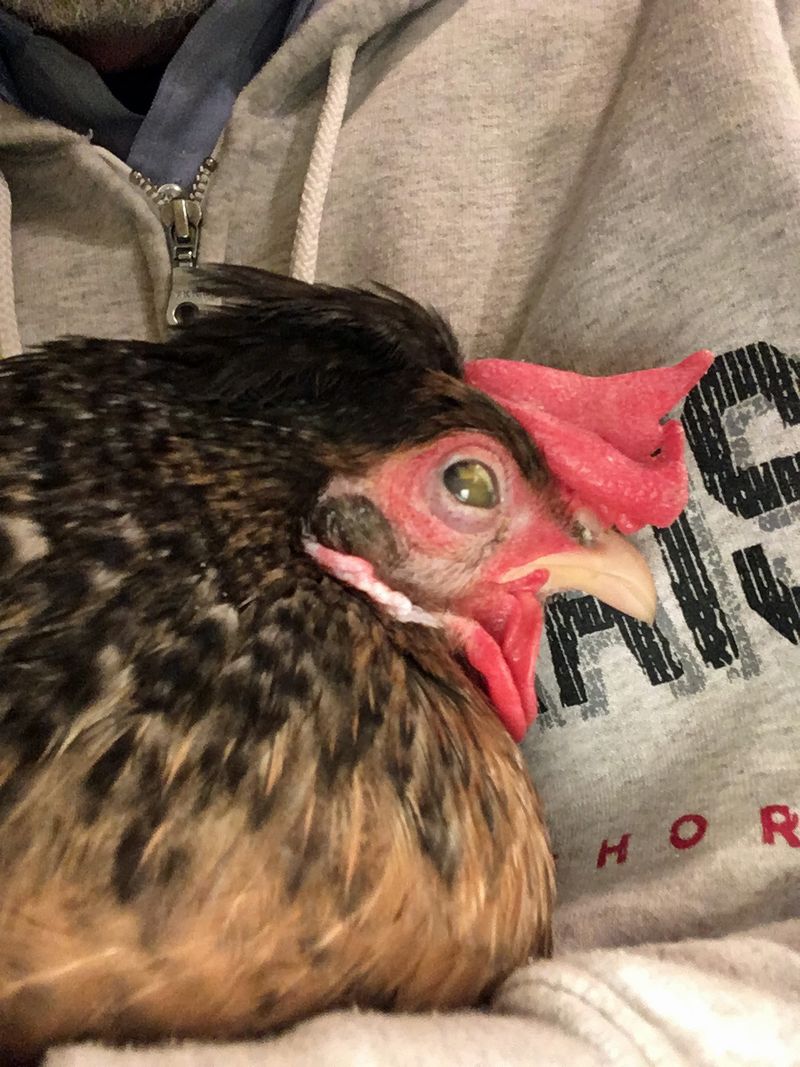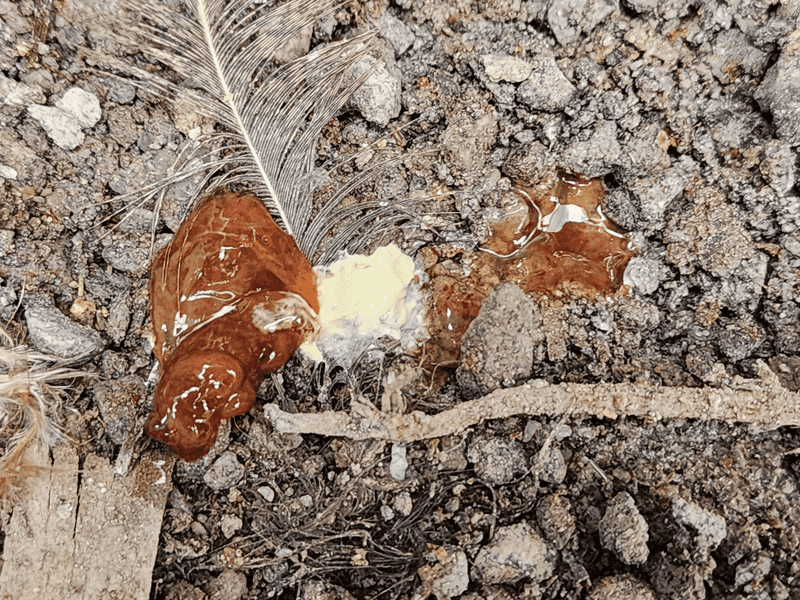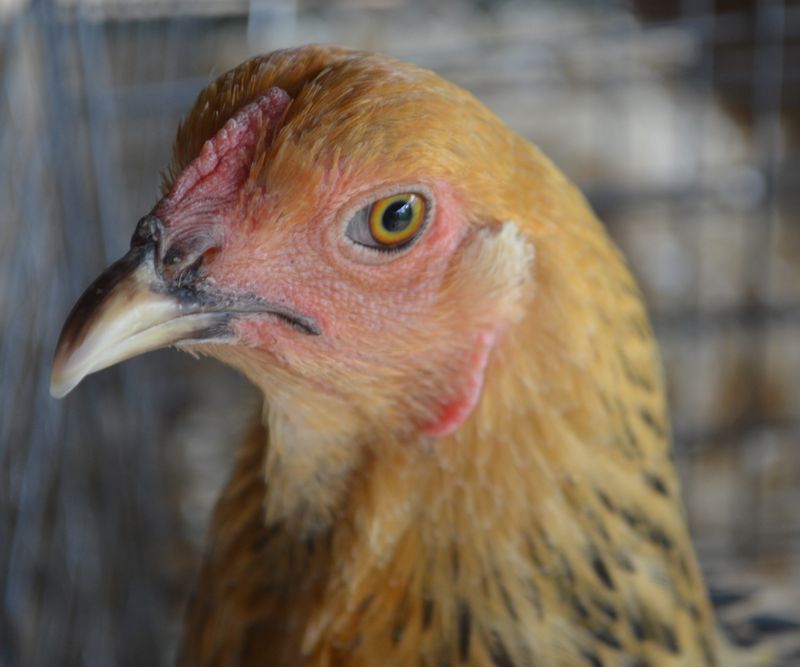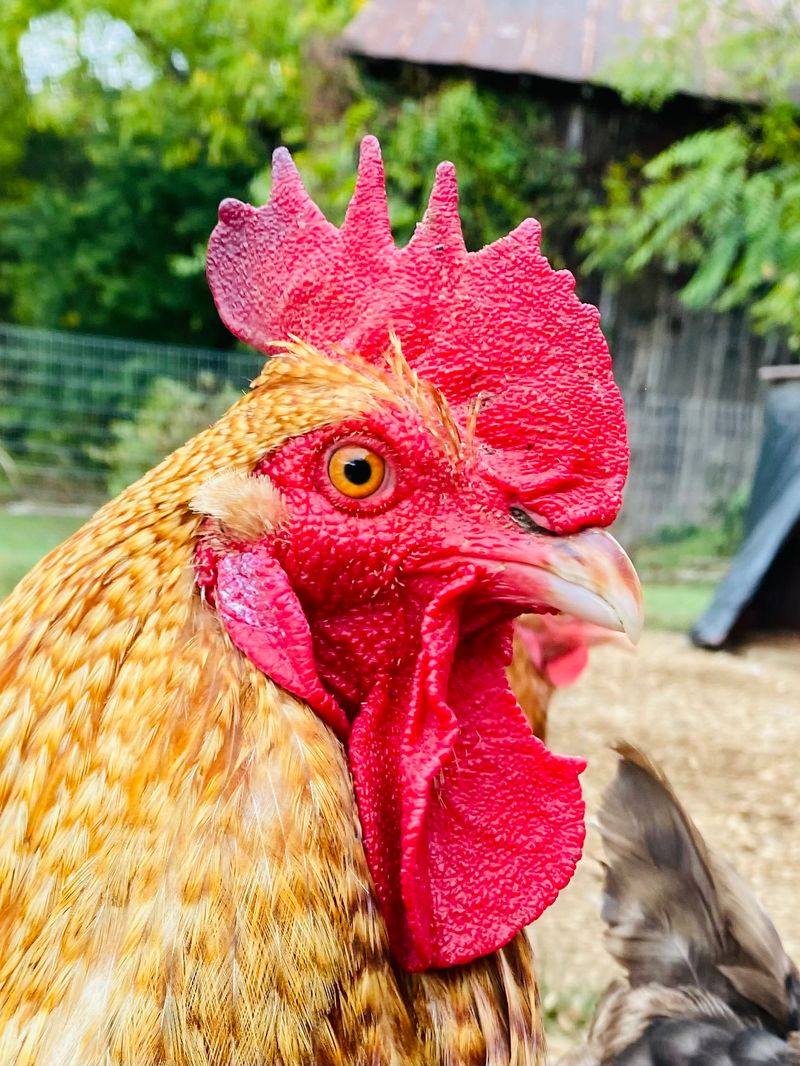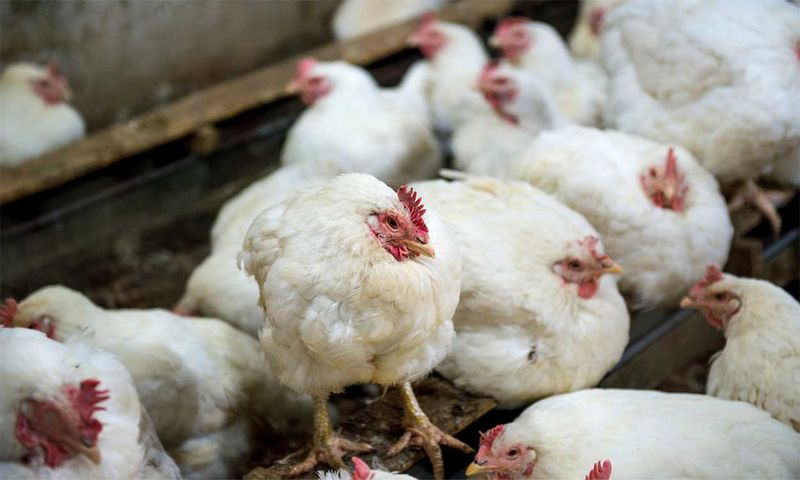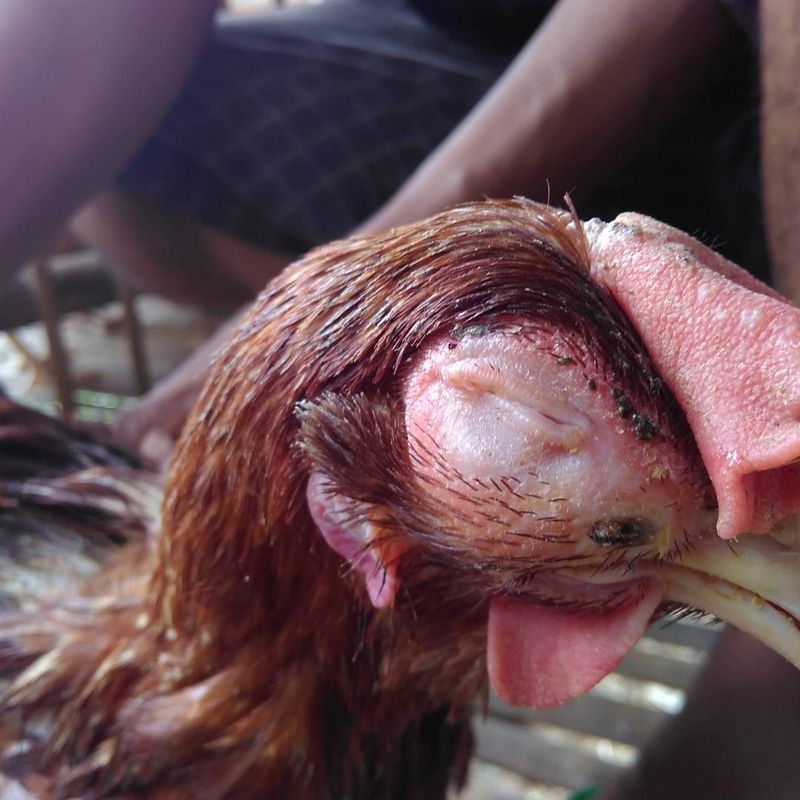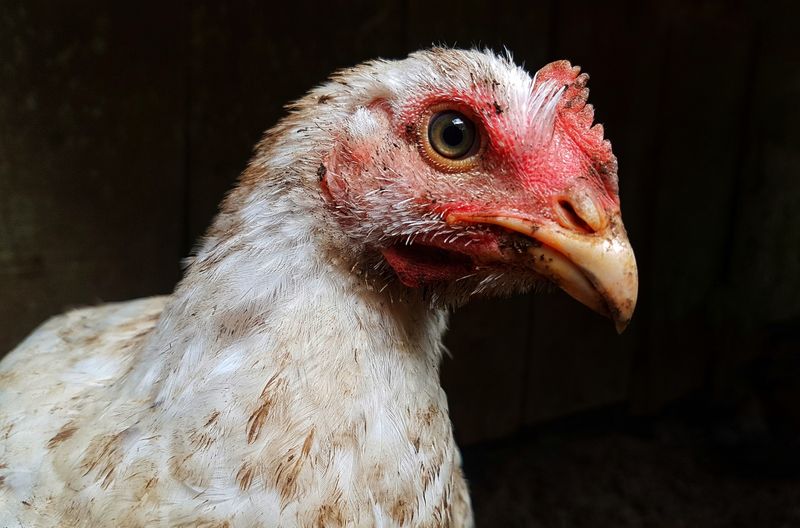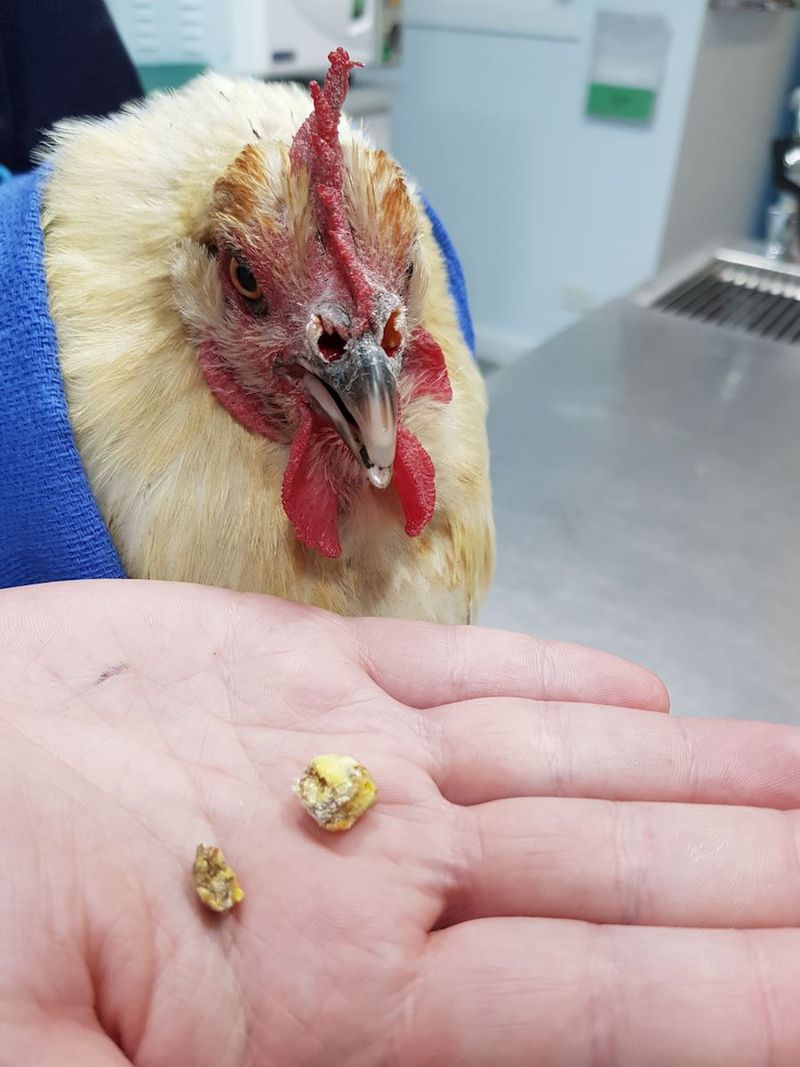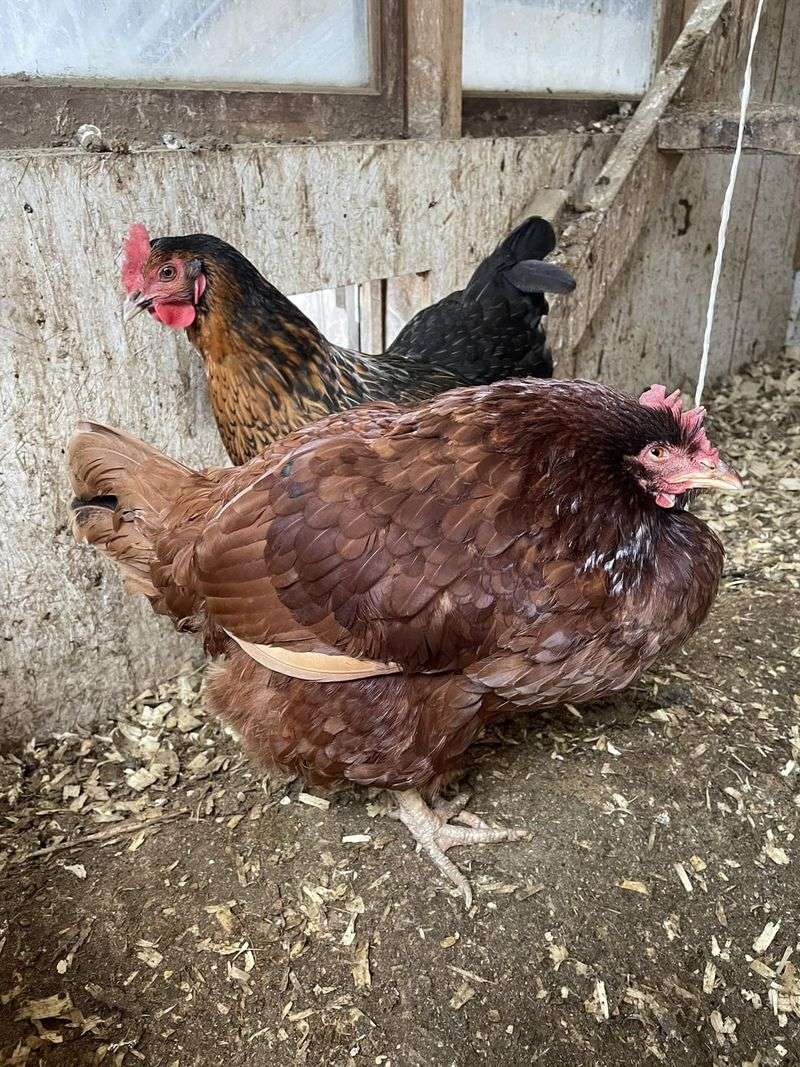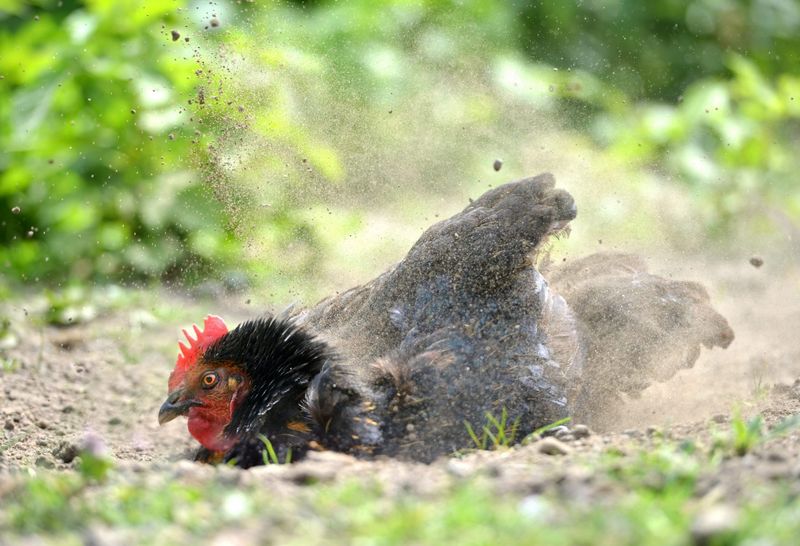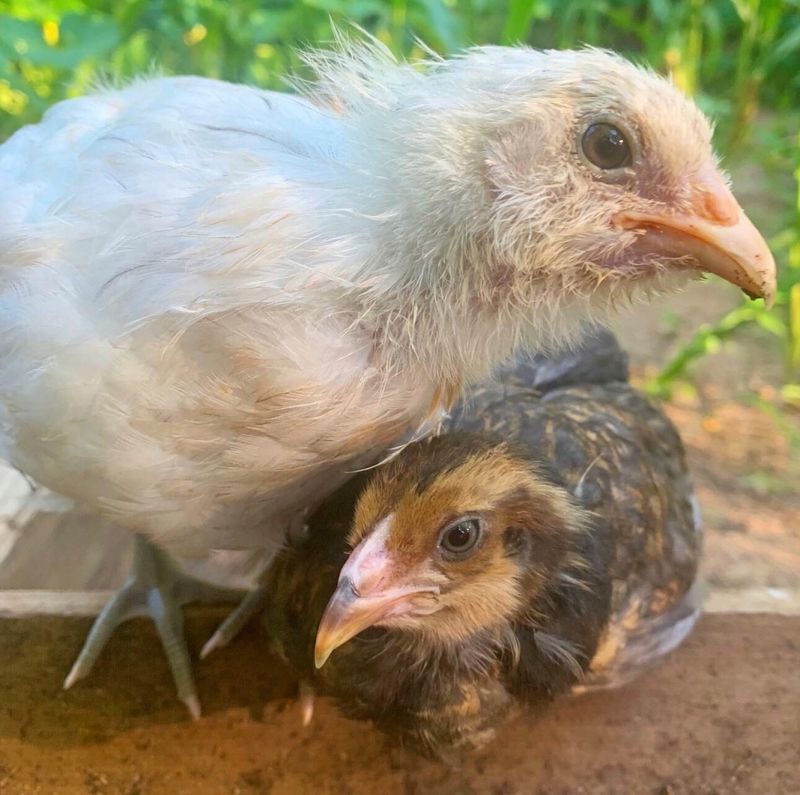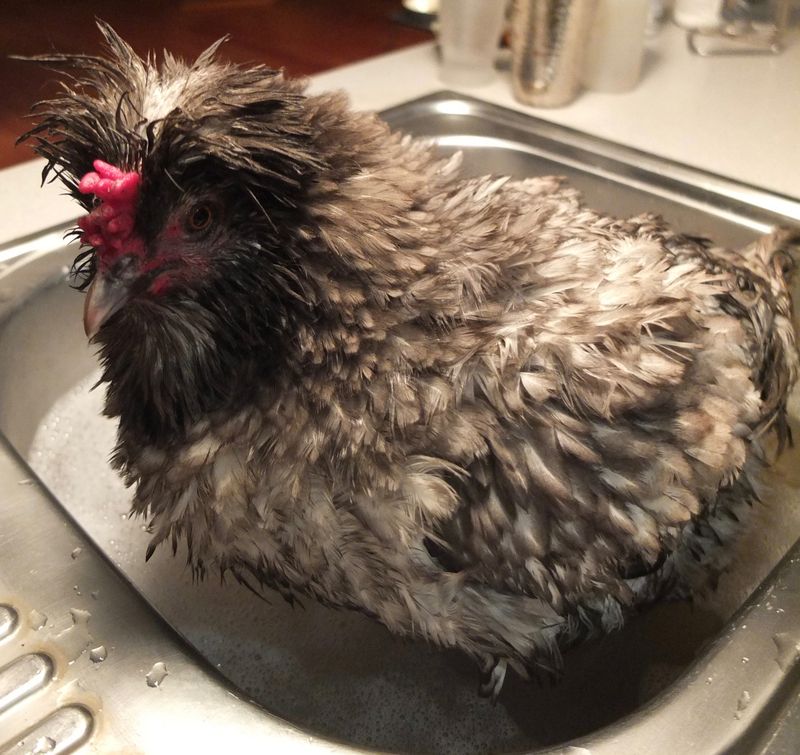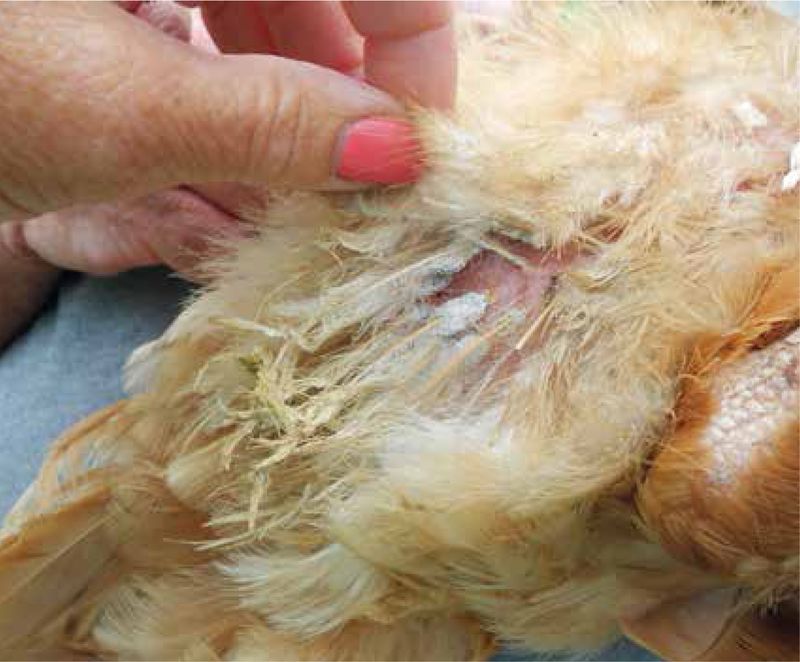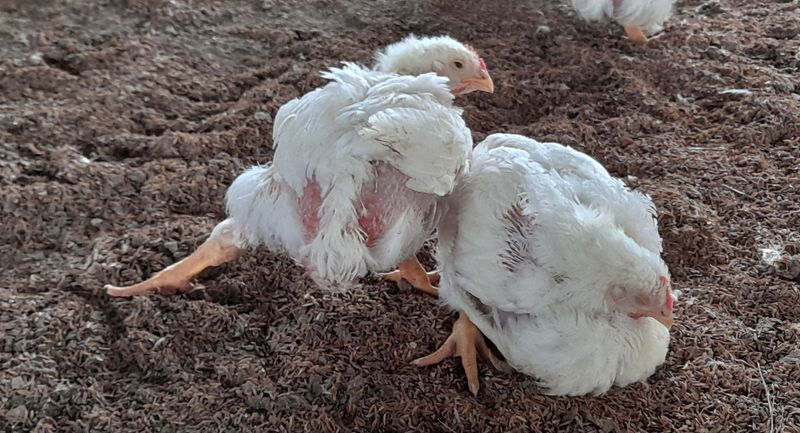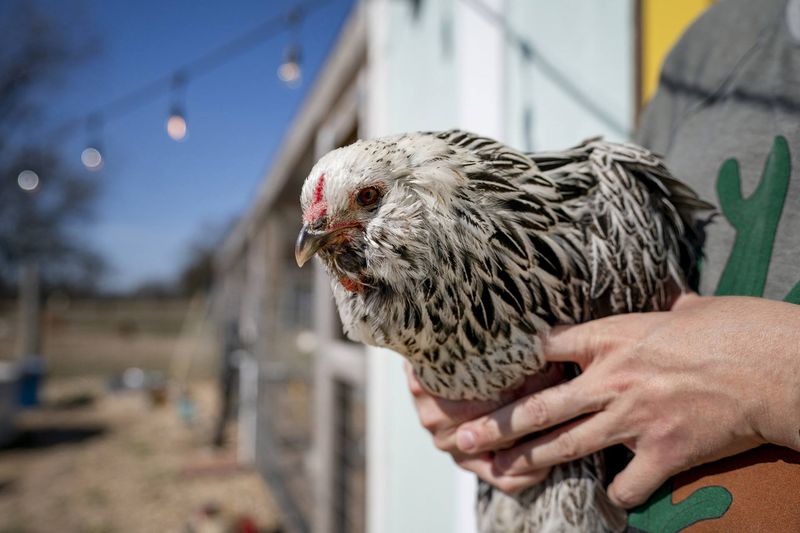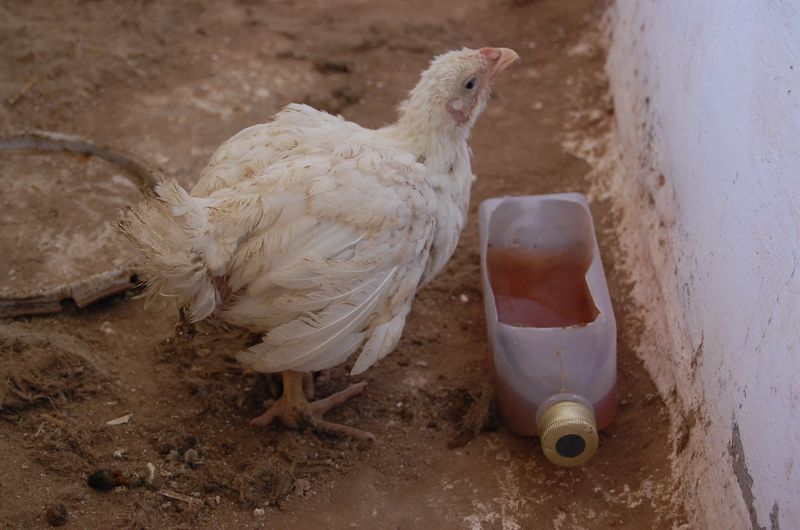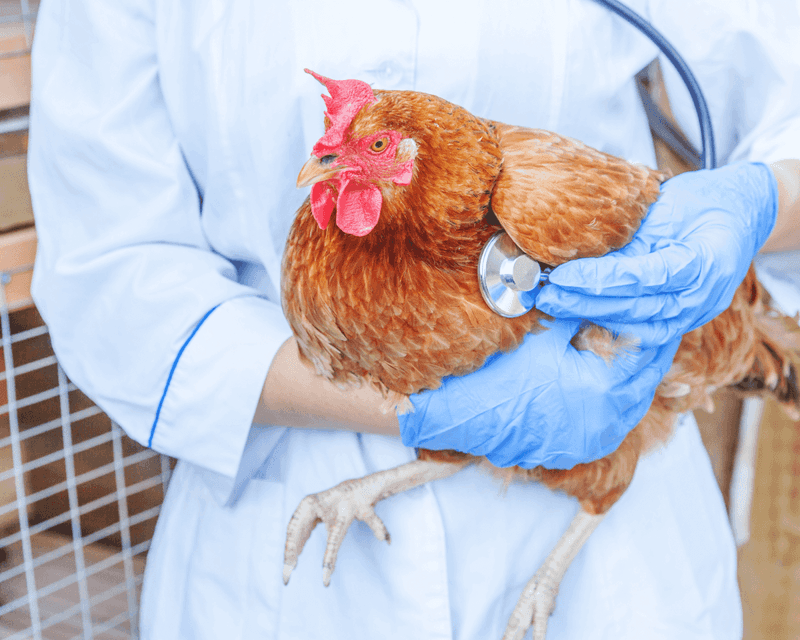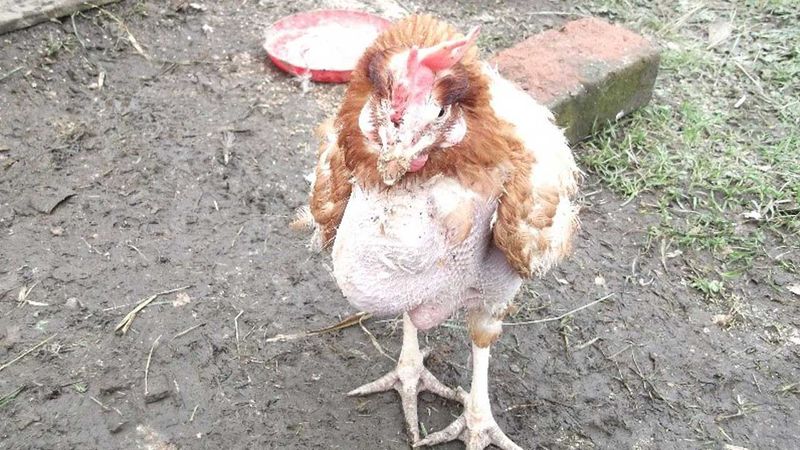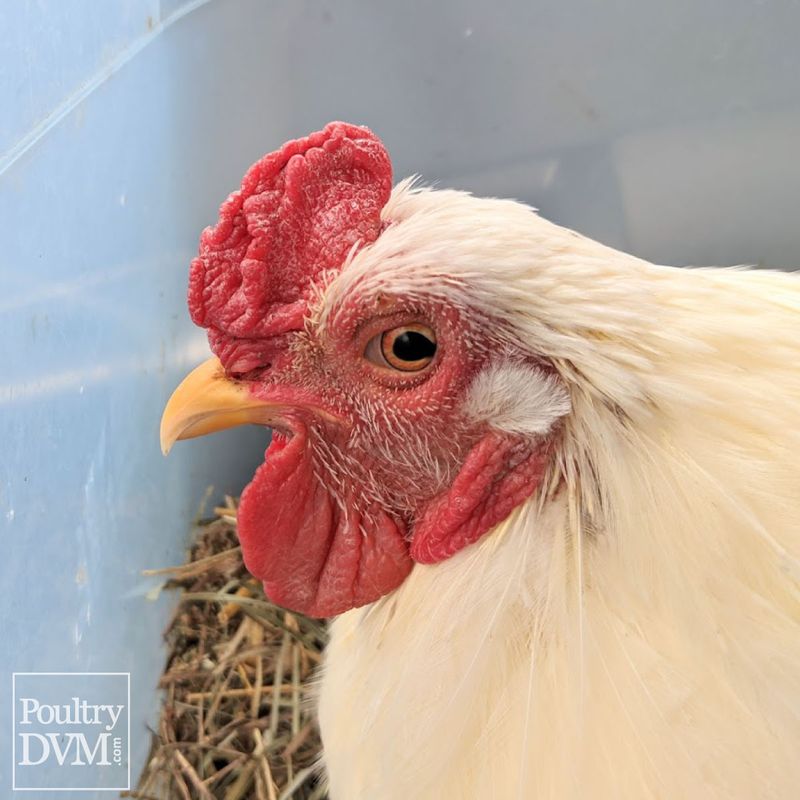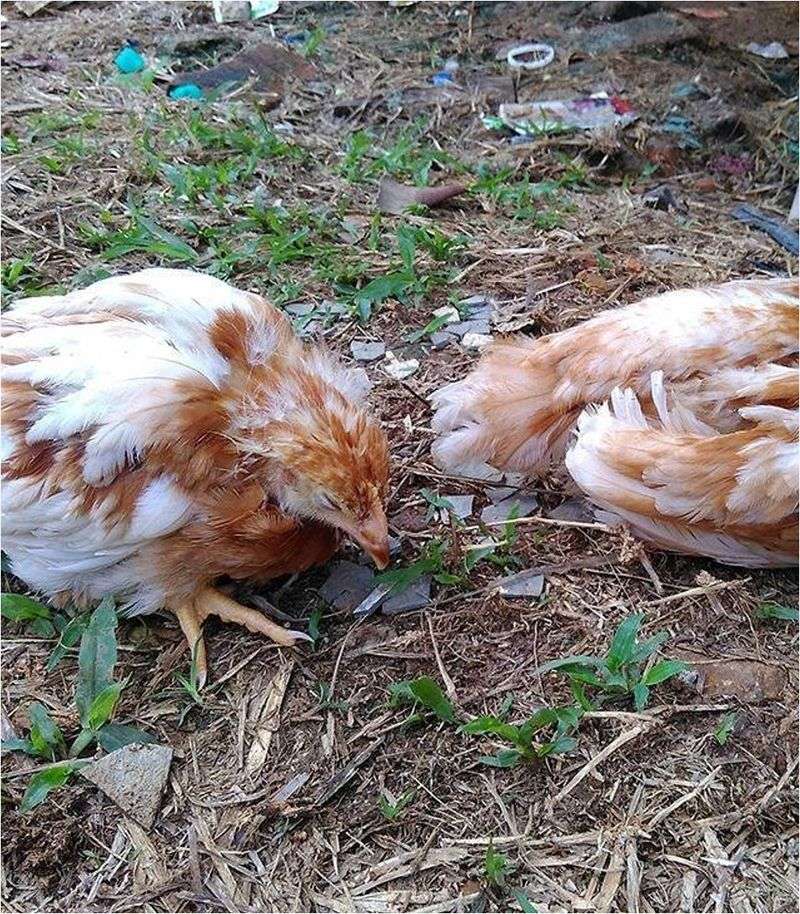Raising backyard chickens can be a rewarding experience, but it also comes with its own set of challenges. Among these are the various diseases and health problems that can affect your flock.
This comprehensive guide covers 21 common chicken ailments, detailing their causes, symptoms, and treatment options. Understanding these issues and knowing how to address them is essential for maintaining a healthy flock.
Whether you’re dealing with bacterial, viral, or parasitic infections, this guide provides actionable advice to help you manage and prevent these health problems effectively.
1. Marek’s Disease
Marek’s Disease is a highly contagious viral infection caused by a herpesvirus. It primarily affects young chickens, often resulting in paralysis and tumors. Symptoms may include one leg stretched forward while the other stretches back, and cloudy eyes indicating vision loss.
Chicks are most susceptible within the first few weeks of life. There is no cure, making prevention critical; vaccinate chicks on the first day. Infected birds should be culled to prevent the spread to others. Maintaining a clean environment and practicing good biosecurity can help reduce the risk of infection.
2. Coccidiosis
Coccidiosis is a common and serious parasitic infection in chickens, caused by protozoa. Infected birds often exhibit symptoms like bloody droppings, weakness, and poor weight gain.
The disease thrives in damp and unsanitary conditions, making cleanliness essential. Treatment typically involves medicated feed containing amprolium, which helps reduce the severity of the infection.
Keeping the coop dry and clean is key to preventing future outbreaks. Regularly change bedding and ensure proper ventilation to minimize moisture build-up. Early intervention can significantly improve recovery rates and prevent severe illness.
3. Newcastle Disease
Newcastle Disease is a viral infection that affects a variety of bird species, including chickens. Symptoms range from coughing and sneezing to more severe neurological signs like twisted necks and paralysis.
There is no cure, so vaccination is the primary method of prevention. Affected birds should be isolated to minimize the risk of spreading the virus. Practicing strict biosecurity and maintaining good hygiene in the poultry environment can help prevent outbreaks.
It’s vital to report any suspected cases to local authorities to control the spread and protect both domestic and wild bird populations.
4. Fowl Pox
Fowl Pox is a slow-spreading viral disease that presents in two forms: dry and wet. The dry form causes scabs on the comb, wattles, and other skin areas, while the wet form leads to lesions in the mouth and upper respiratory tract.
There is no direct treatment for Fowl Pox; however, applying iodine to the lesions can help manage symptoms. Vaccines are available and are effective in preventing the disease.
Keeping birds comfortable and isolated from mosquitoes, which spread the virus, can also reduce the risk of infection.
5. Infectious Bronchitis
Infectious Bronchitis is a highly contagious viral disease that affects the respiratory tract of chickens. Common symptoms include sneezing, watery eyes, and a significant drop in egg production.
There is no specific treatment, but supportive care can alleviate symptoms. Keeping the affected birds warm and ensuring they have access to clean water and feed is essential.
Vaccination is an effective preventive measure and should be part of routine flock management. Maintaining high biosecurity standards and proper ventilation in the coop can further help in controlling the spread of the virus.
6. Infectious Coryza
Infectious Coryza is a bacterial infection that causes swelling of the face, nasal discharge, and a foul odor. It spreads rapidly in flocks, especially in poorly ventilated coops.
While antibiotics may help manage symptoms, birds often become lifelong carriers, posing a continuous risk of spreading the disease. Improving air quality and sanitation in the coop can prevent outbreaks.
Isolate infected birds and practice strict biosecurity measures to protect the rest of the flock. Regular health checks and maintaining a stress-free environment can also reduce the incidence of infections.
7. Avian Influenza (Bird Flu)
Avian Influenza, commonly known as Bird Flu, is a viral infection that affects birds worldwide. Symptoms in chickens include sudden death, blue combs, and severe respiratory distress.
There is no cure for Avian Influenza, making prevention and control critical. Strict biosecurity measures should be implemented to prevent the introduction and spread of the virus.
Infected birds should be reported to authorities immediately. It’s essential to limit contact between domestic poultry and wild birds, which can carry the virus. Proper disposal of infected carcasses and thorough cleaning of facilities can help control outbreaks.
8. Mycoplasma Gallisepticum (Chronic Respiratory Disease)
Mycoplasma Gallisepticum is a bacterial-like organism causing Chronic Respiratory Disease in chickens. Symptoms include coughing, nasal discharge, and eye swelling. Although antibiotics can ease symptoms, infected birds typically remain carriers for life.
Improve coop ventilation and reduce dust to minimize outbreaks. Quarantine new and sick birds to prevent disease spread. Vaccination may offer some protection and should be considered in high-risk areas.
Maintaining a stress-free environment and providing a balanced diet can support immune function, reducing the likelihood of severe infections. Regular health monitoring is essential for early detection and management.
9. Bumblefoot
Bumblefoot is a bacterial infection that occurs in the footpad of chickens, often due to injury or poor coop conditions. Affected birds display a swollen, warm, and scabby foot, which can lead to lameness if untreated.
Treatment involves soaking the foot in warm water, carefully removing the scab, and applying antibiotic ointment. Bandaging the foot and keeping the coop dry can aid recovery.
Preventative measures include using soft bedding and eliminating sharp objects in the coop. Regularly inspect feet for early signs of infection to ensure prompt treatment and minimize discomfort.
10. Egg Binding
Egg Binding occurs when a hen cannot pass an egg, usually due to calcium deficiency or reproductive issues. Signs include lethargy, straining, and a swollen abdomen.
Immediate care involves placing the hen in a warm bath to help relax muscles and providing calcium supplements to strengthen contractions. If home remedies fail, professional veterinary assistance is necessary.
Prevent egg binding by providing a balanced diet rich in calcium and maintaining a stress-free environment. Regular monitoring of egg-laying hens can help identify and address this issue promptly, ensuring the health and well-being of the flock.
11. Parasites (External & Internal)
Parasites, both external like lice and mites, and internal like worms, are common in chickens. Infestations lead to symptoms such as itching, feather loss, and pale combs. Regular dust baths and maintaining a clean coop help prevent infestations.
Treatment involves using poultry-safe dewormers and insecticides. Rotating free-range areas can reduce parasite load in the environment. Regular health checks can catch infestations early, allowing for timely treatment.
Providing a varied diet supports the immune system, helping chickens fight off parasitic infections. Ongoing management ensures a healthy and productive flock, free of bothersome parasites.
12. Aspergillosis (Brooder Pneumonia)
Aspergillosis, also known as Brooder Pneumonia, is caused by fungal spores often found in moldy litter or feed. It leads to gasping, weakness, and severe respiratory distress. There is no cure, so prevention is essential.
Remove moldy materials immediately and maintain dry, clean living conditions. Ensuring proper ventilation in the coop can help reduce humidity and mold growth. Affected birds should be isolated to prevent the spread of fungal spores.
Regularly inspect and replace bedding to maintain optimal environmental conditions, minimizing the risk of Aspergillosis in your flock.
13. Vent Gleet (Cloacitis)
Vent Gleet, or Cloacitis, is an infection of the vent area often caused by a fungal or bacterial imbalance. Symptoms include a swollen, smelly vent area and feather loss. Treatment involves Epsom salt baths to cleanse the area, antifungal applications, and probiotics to restore healthy gut flora.
Improved coop hygiene and a well-balanced diet can prevent future occurrences. Regularly clean the vent area and monitor for early signs of infection. Providing stress-free living conditions and proper nutrition supports overall health, reducing susceptibility to Vent Gleet and other infections.
14. Worm Infestations (Roundworms, Tapeworms, etc.)
Worm infestations, including roundworms and tapeworms, are prevalent in poultry. They cause symptoms such as diarrhea, weight loss, and pale combs. Routine deworming with poultry-safe medications and maintaining a clean coop environment can control infestations.
Regular fecal examinations help detect and treat worms early. Rotating pastures and keeping feed and water clean also reduce exposure. Providing garlic or pumpkin seeds as natural dewormers can complement conventional treatments.
Monitoring flock health and promptly addressing any signs of infestations contribute to maintaining a healthy and thriving flock, minimizing the impact of parasitic worms.
15. Avian Encephalomyelitis
Avian Encephalomyelitis is a viral disease affecting the central nervous system of young chickens. Symptoms include uncoordinated movements, tremors, and paralysis, primarily in chicks.
There is no cure, so prevention is crucial; vaccinate breeder flocks to protect future generations. Isolate affected birds to prevent the spread of the virus. Ensuring adequate nutrition and a stress-free environment supports immune function.
Regular monitoring and vaccination protocols help maintain healthy flocks. Early detection is vital for managing the disease and minimizing its impact on young birds, safeguarding the future productivity of the flock.
16. Salmonella
Salmonella is a bacterial infection that can affect chickens and humans alike, often transmitted through contaminated eggs. Symptoms in chickens include diarrhea and a drop in egg production, though they can also be asymptomatic carriers.
While the infection is often self-limiting, ensuring proper sanitation and egg handling is crucial to prevent spread. Regular cleaning of the coop and equipment reduces bacterial load.
Implementing biosecurity measures and providing a balanced diet strengthens the flock’s resistance. Maintaining hygiene practices minimizes the risk of Salmonella, protecting both your birds and your family from potential outbreaks.
17. E. coli Infections (Colibacillosis)
E. coli infections, or Colibacillosis, occur when chickens are exposed to fecal contamination. Symptoms include weakness, breathing difficulties, and diarrhea. Administering antibiotics can treat the infection, but improving hygiene and ventilation is key to prevention.
Regular cleaning of the coop and ensuring proper airflow reduces bacterial growth. Isolating sick birds and monitoring flock health helps prevent outbreaks. Providing clean water and a nutritious diet enhances immune function, aiding in recovery and resistance.
Consistent management practices and swift response to symptoms help maintain a healthy flock free from E. coli-related issues.
18. Toxoplasmosis
Toxoplasmosis is a parasitic infection that can affect chickens, often contracted through contact with cat feces. Symptoms include tremors, paralysis, and general weakness. There is no cure for Toxoplasmosis, making prevention essential.
Keep cats away from chicken feed and water sources to minimize exposure. Maintaining clean living conditions and proper sanitation reduces the risk of infection. Regular health checks and monitoring for symptoms allow for early intervention and management.
Ensuring a stress-free environment and balanced nutrition helps support the flock’s overall health and resilience against various infections, including Toxoplasmosis.
19. Crop Impaction or Sour Crop
Crop impaction occurs when a blockage prevents food from passing from the crop to the stomach. A sour crop may develop due to fungal overgrowth. Symptoms include a swollen, sour-smelling crop and loss of appetite.
Treatment involves crop massage, flushing, and antifungals if necessary. Prevent impaction by providing grit to aid digestion and avoiding feeding long grasses. Regularly check the crop’s condition to catch issues early.
A balanced diet and clean water supply support overall digestive health. Proper management and attentive care can prevent and resolve crop-related issues, ensuring healthy digestion.
20. Fowl Cholera
Fowl Cholera is a bacterial infection caused by Pasteurella multocida. It manifests as sudden death, swollen wattles, and green droppings. Antibiotics can help manage outbreaks, but infected birds may remain carriers, posing a risk to others.
Vaccines are available and can prevent the disease. Improving coop hygiene and ventilation reduces bacterial spread. Isolating infected birds and practicing strict biosecurity measures are vital in controlling outbreaks.
Regular health monitoring and vaccination protocols contribute to maintaining flock health. Swift intervention and ongoing management help minimize the impact of Fowl Cholera on your birds.
21. Gumboro Disease (Infectious Bursal Disease)
Gumboro Disease, or Infectious Bursal Disease, is a viral infection that primarily affects young chicks. It causes symptoms such as diarrhea, dehydration, and ruffled feathers. There is no cure for Gumboro Disease, making prevention essential.
Vaccination of young birds is the most effective way to protect them from the virus. Maintaining clean and dry living conditions minimizes the risk of infection.
Isolating infected birds and practicing good biosecurity measures are crucial in preventing the spread of the virus. Regular health checks and a balanced diet support overall chick health and resilience.
